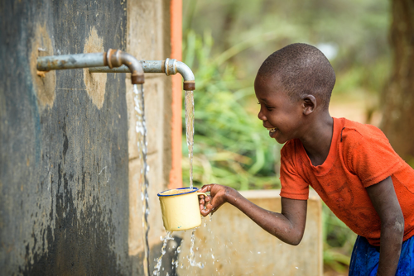The Ministry of Health and Wellness (MOHW) insists that there is no need to boil water before use, even though it was concluded that some water samples from systems operated by the National Water Commission (NWC) have tested positive for the bacteria E. coli.
The disclosure about the state of the country’s water supply comes weeks after Opposition Junior Spokesman on Health and Wellness, Jesse James Clark raised an alarm. Clark, who chairs the Public Health and Sanitation Committee at the Kingston and St Andrew Municipal Corporation (KSAMC) expressed concern about the country’s water quality after touring several treatment plants and rural water facilities. He asserted that tests showed elevated levels of fecal coliform bacteria in some areas, exceeding the acceptable limit.
The NWC had rejected the claims, and insisted that its water supply is continuously monitored and tested in accordance with MOHW guidelines and established international standards.
But in a media release on Tuesday, the MOHW confirmed some of the concerns that were already made public. It insisted however that there was no need to ask residents to boil water before use.
“It is important to clarify that a Boil Water Advisory is a public health precaution issued solely by the Medical Officer of Health —the authority responsible for safeguarding public health within each parish. This advisory is issued when there is an imminent risk of water-borne disease and typically applies to a specific geographic area affected by compromised water supply systems,” the MOHW stated.
“Boil Water Advisories are localised and not parish-wide, except in the case of major natural disasters such as hurricanes, flooding, or earthquakes that significantly impact water quality.”
Clark, who had urged the public to boil water before consumption, called for immediate intervention to be put in place to improve treatment processes. He said the situation was a “public health emergency,” and appealed to the government to allocate resources for critical upgrades at smaller water treatment facilities.
In 2022, The World Health Organisation (WHO) in partnership with UN-Water published a report ranking Jamaica among the top 25 per cent of countries on track for achieving their water sanitation targets for the UN Sustainable Development Goal (SDG) 6 – water and sanitation for all by 2030. It is not known whether the recent revelations will affect this ranking.
“The world is seriously off-track to achieve SDG 6 on water and sanitation for all, by 2030. This leaves billions of people dangerously exposed to infectious diseases, especially in the aftermath of disasters, including climate change-related events,” said Gilbert F. Houngbo, chair of UN-Water, and director general of the International Labour Organization.
According to the Water Resources Authority (WRA), Jamaica’s water quality is among the best in the world. This is due to the lack of harmful chemical and pharmaceutical contaminants.


